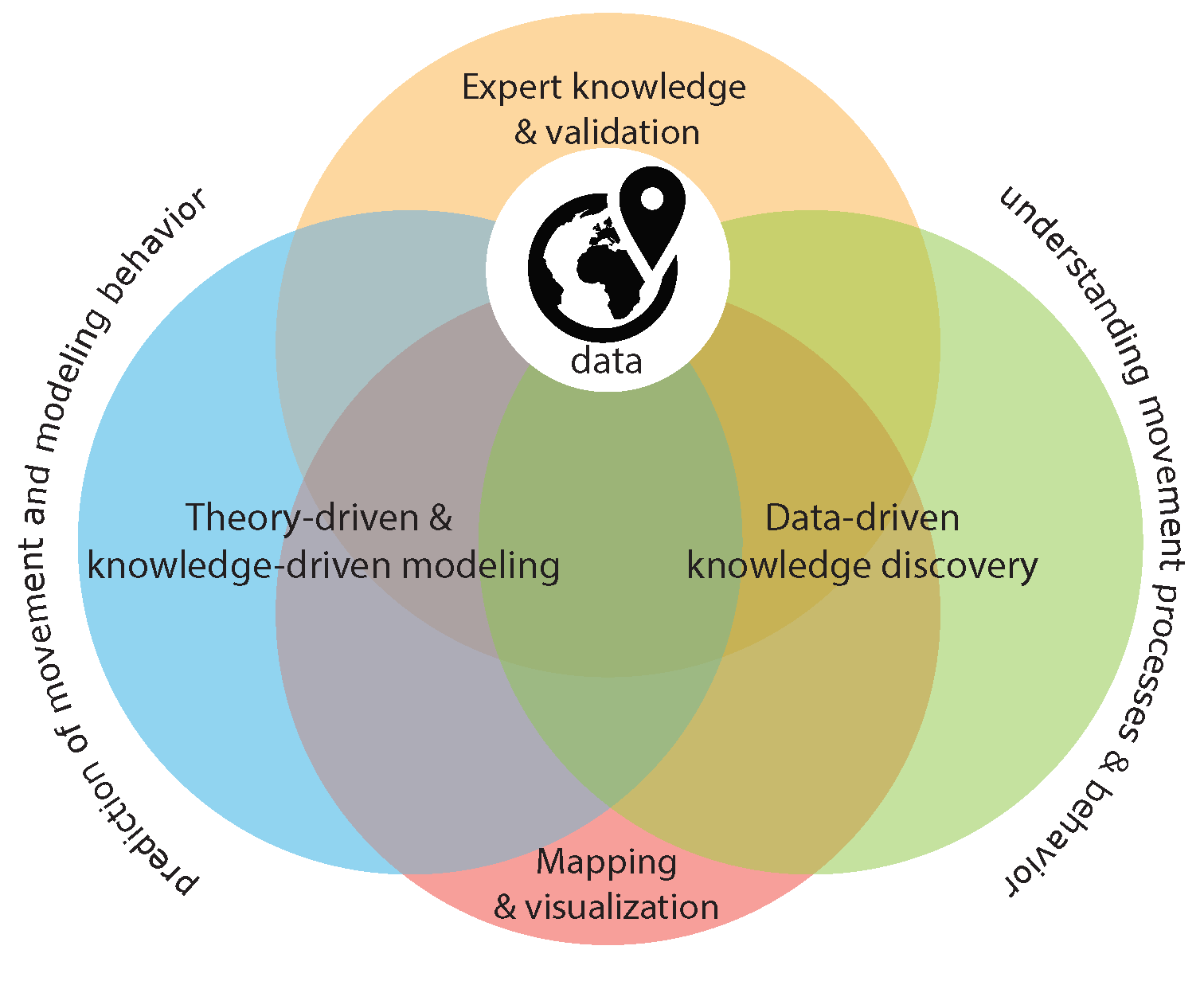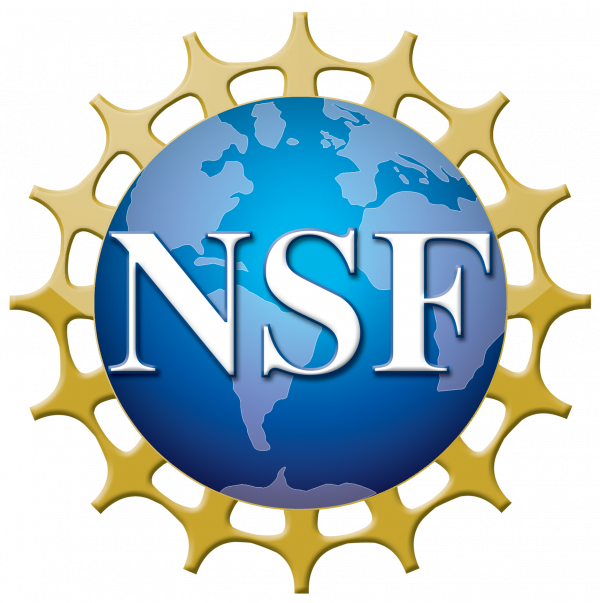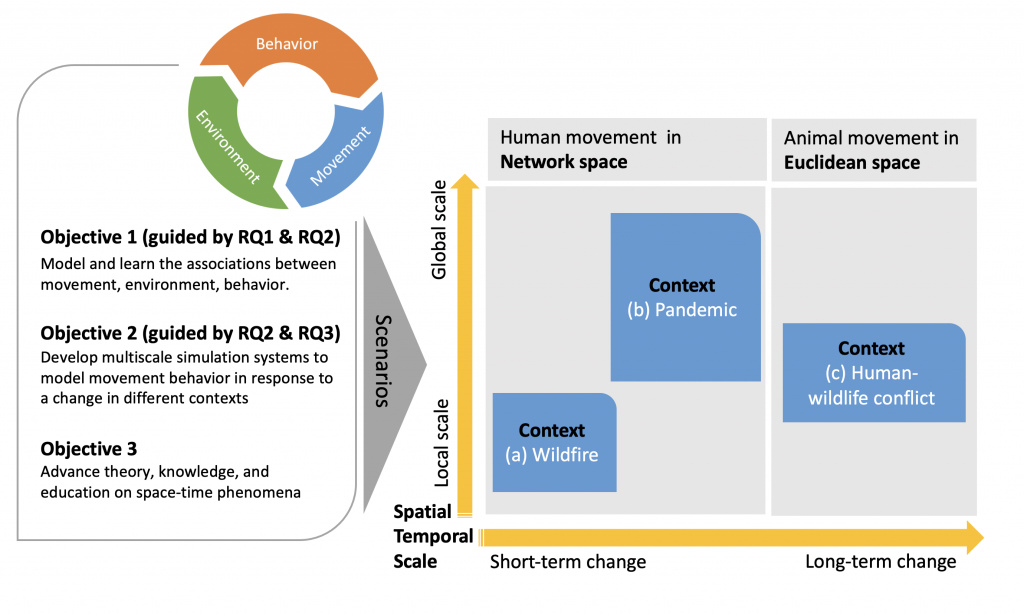Advancing Movement Data Science (AMD’21)
At the 11th International Conference on Geographic Information Science (GIScience 2021), 27 September 2021, Virtual workshop
AMD 2021 workshop is the 4th workshop in the pre-GIScience conference AMD workshop series, co-organized by Dr. Dodge. This workshop pursues three aims. First, to provide a platform to discuss the state of the art in this domain in the past decade. Second, to discuss the potential of data science methodologies to advance movement analytics in various domains such as human mobility and animal ecology. And third, to identify the key challenges for future research and (re-)define the research agenda towards advancing movement data science. For more information and to participate, please see the workshop webpage.
Workshop Themes
- Data science and movement analytics
- Integrated science of movement: converging human mobility and movement ecology research
- From patterns to processes: Context-dependent movement analytics and bridging the semantic gap
- From individuals to collectives: Modeling and analyzing interactions between individuals
- Data fusion: Integrating different sensors (e.g. different positioning sensors and accelerometer or locational data with satellite remotely sensed products) and sensing models (checkpoint sensing vs continuous GPS tracking)
- From analysis to modeling: Simulation of movement and mobility
- Mobility and health
- Big mobility data analytics and predictive modeling
- Visualization and visual analytics in support of movement analysis
- Geoprivacy issues and geomasking methods for mobility data
- Ethics of movement data analytics
Workshop Organizers
- Somayeh Dodge – University of California Santa Barbara, USA.
- Urška Demšar– University of St Andrews, Scotland, UK.
- Patrick Laube – Institute of Natural Resource Sciences, Zurich University of Applied Sciences, Switzerland
- Katarzyna Siła-Nowicka – University of Auckland, New Zealand.
- Robert Weibel – University of Zurich, Switzerland.


